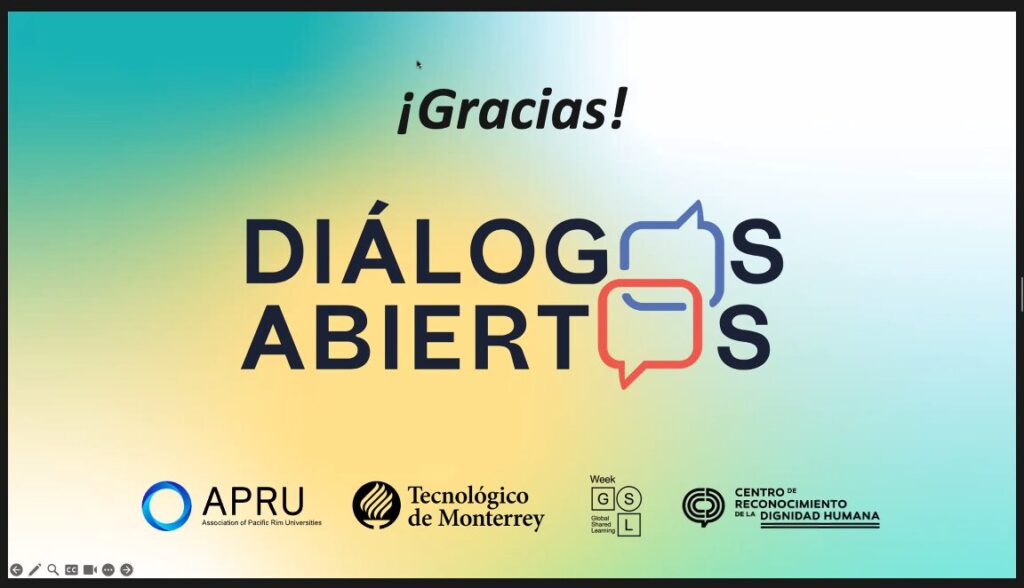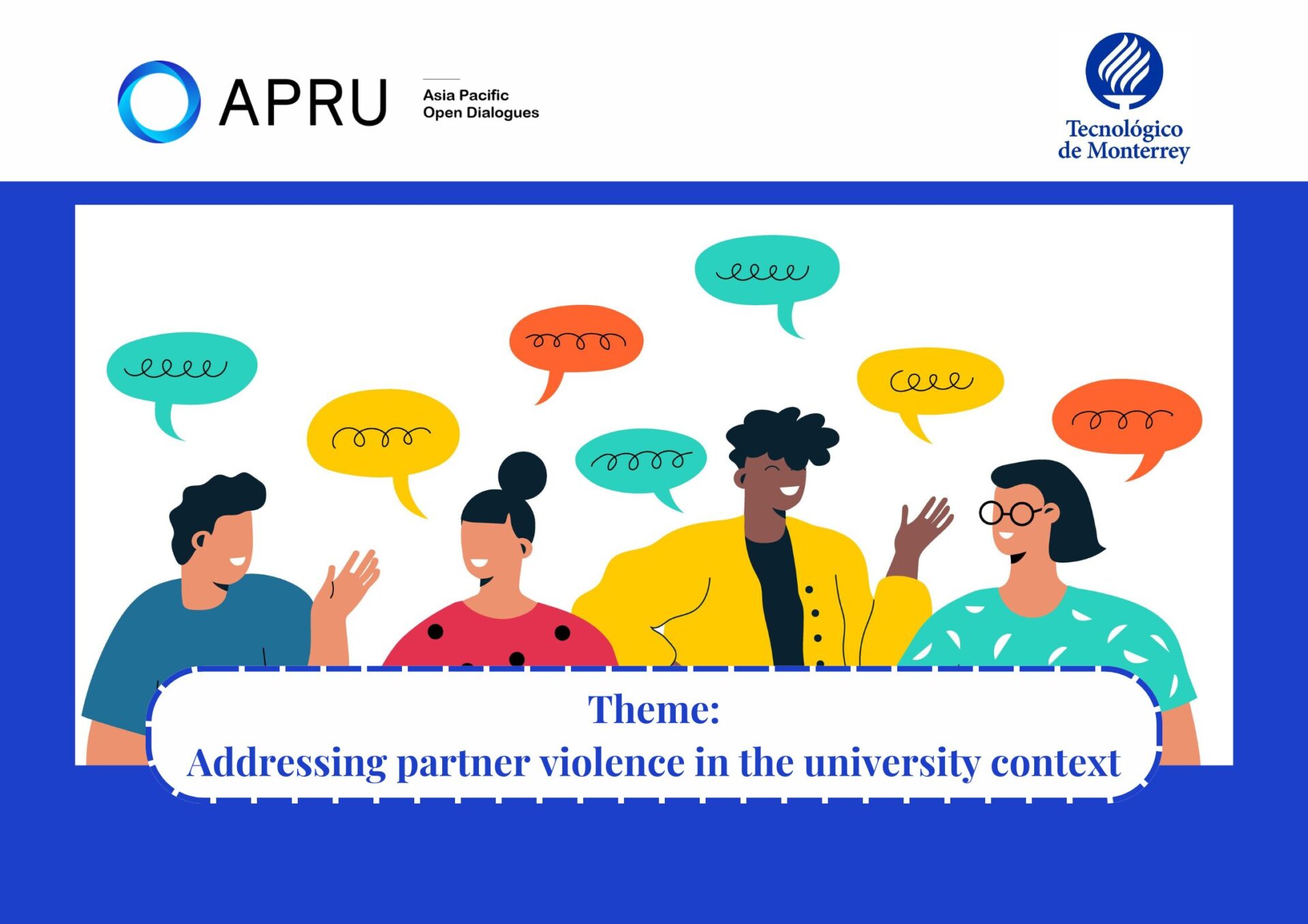The Vice-Rectorate for Internationalization, through the Directorate of Transversal Models, and the Vice-Presidency for Inclusion, Social Impact and Sustainability, through the Center for the Recognition of Human Dignity of the Tecnológico de Monterrey, in collaboration with the consortium of Pacific Rim Universities (APRU), held the APRU Open Dialogues 3rd Cohort on October 23.
The theme of this edition sought to generate a space in which students could become aware of and reflect on partner violence in the university context. More than 50 students from 4 universities (Tecnológico de Monterrey, Universidad San Francisco de Quito, University of Chile and UCASAL) and 24 moderators participated.
In this edition, the team of moderators was not only made up of the academic team of the Tecnológico de Monterrey, but also included the participation of Alejandra Parra from the Universidad de San Francisco de Quito and Osvaldo Guzmán from the Universidad de Chile, who, thanks to their universities participation in previous cohorts, had the opportunity to be certified in the Dialogue Moderation of the Sustained Dialogue Institutes, offered by the Tecnológico de Monterrey.
But why talk about partner violence in the university context?
According to UN Women, various studies and research at a global level have revealed alarming statistics on gender violence. It is estimated that, worldwide, 736 million women – almost one in three – have been victims of physical or sexual violence by their partner, sexual violence outside the couple, or both, at least once in their lives. Although most studies on partner violence include only the female population, there are figures that indicate that both sexes may be susceptible to suffering it. Furthermore, we cannot forget that heteronormativity persists in society, making people in the LGBTIQA+ community more vulnerable due to external stress factors, such as discrimination and violence against this community.
Knowing the impact at a global level is crucial to understand the magnitude of the problem and take measures to prevent it. Educational institutions play a very important role in the learning process about gender relations and how these relations are fundamental to the origin of violence. In addition, universities are spaces where we can reflect, make these realities visible and raise awareness among people who in the future will be able to formulate effective policies and programs to prevent violence.
As part of the learning generated in the dialogue tables, the students who participated in the exercise recognized that “the session was a calm space, with freedom to talk about all the issues,” and that “listening to the experiences of other people can help us propose solutions to these problems,” stating that “we are contributing our grain of sand to generate change.” Finally, they invited the team to “generate more international spaces where we can learn to listen different perspectives and bring them to our own context to generate change.”
At the end of the activity, Adriana Rojas, Senior Director of Programs at APRU, said “We thank all the people who participated in this exercise of international dialogue today. These spaces contribute not only to reflection on difficult issues, but also make us sensitive to international contexts.” For her part, Perla Salinas, Director of Training in Human Dignity at the Center for Recognition of Human Dignity at the Tecnológico de Monterrey, commented that “these spaces promote the recognition of all people and their diversity, and also help us imagine ways of inhabiting the world more peacefully, renewing hope in complex times.”

These types of efforts not only provide students with opportunities to enrich their international experience but also allow them to understand the importance of connecting with people with different perspectives fostering safe and violence-free spaces.
We look forward to having you at the APRU Open Dialogues 4th Cohort
Author. Natalia Moreno Barbosa, Management and Engagement Leader, Center for the Recognition of Human Dignity at Tecnológico de Monterrey.

